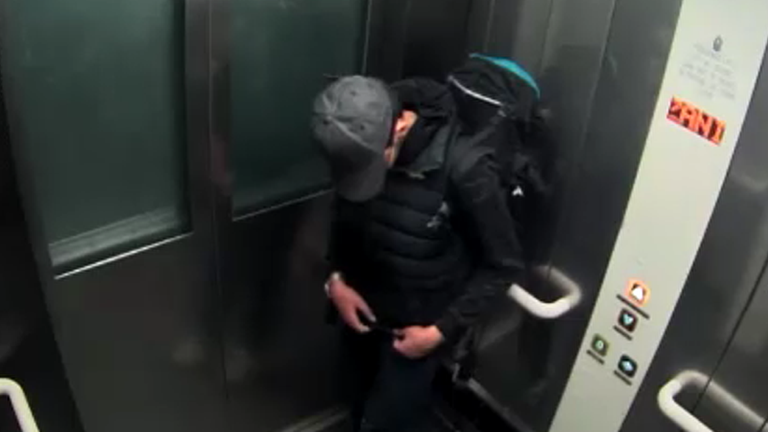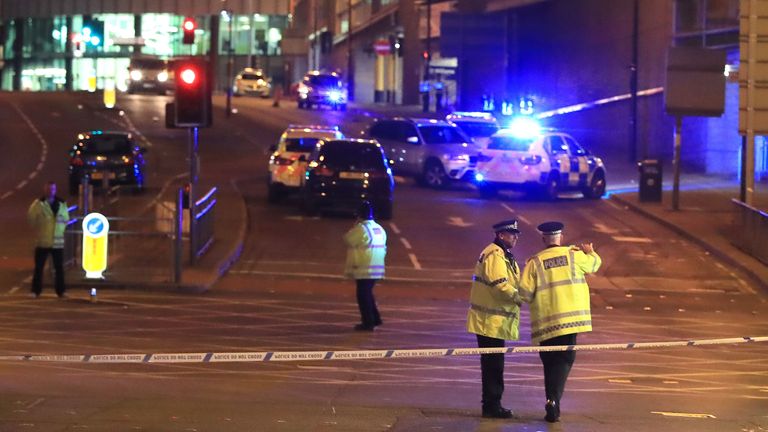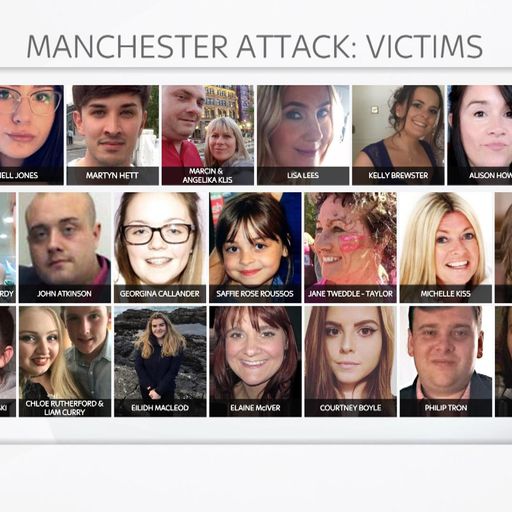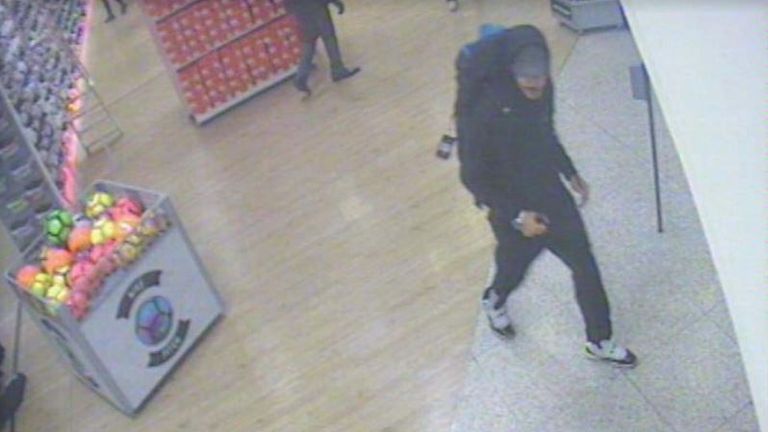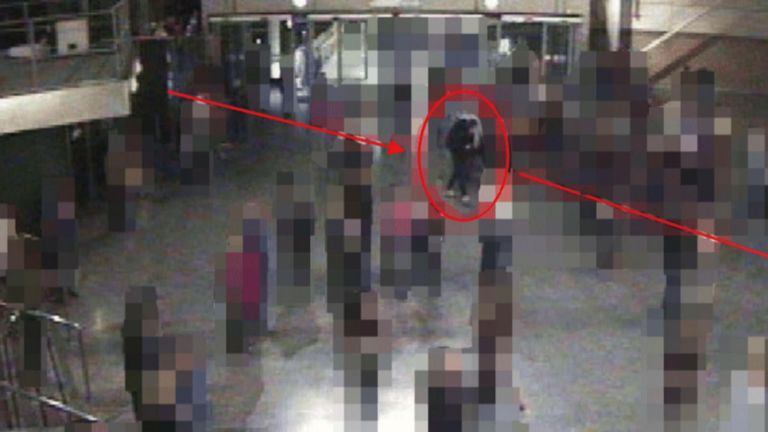There was "almost no chance" of spotting the Manchester Arena bomber when he conducted three reconnaissance trips because there were not enough security staff and they were not properly trained, the inquiry into the attack has heard.
Parts of the counter-terrorism training had been lifted from Wikipedia, the inquiry was told.
The training - which was all online - included the example of the release of Sarin gas on the Tokyo metro in 1995.
Col Richard Latham and David Bamaung, protective security experts commissioned by the inquiry, listed a number of missed opportunities to stop the bomber.
Salman Abedi was seen on CCTV wandering up and down in front of the doors to the arena, behind two security staff, on 18 May, as crowds entered a Take That concert.
He returned briefly on 21 May, and earlier on 22 May, the night of the attack, when Abedi could be seen mingling incongruously with crowds of young girls and their parents heading to the Ariana Grande concert.
In their report, the experts said: "Given the number of security staff and the lack of training, there was almost no chance to notice Salman Abedi's hostile reconnaissance before May 22."
There was no one "proactively monitoring" CCTV and the security operation was "not sufficiently focused on identifying suspicious behaviour," Col Latham added.
The aim would have been to approach him and ask questions with the aim of "convincing him that it was not a good target", he explained.
"Had the staff had further training on spotting hostile reconnaissance, they would have had a higher chance, but by no means certain," Col Latham said.
The inquiry was told that casually-employed staff were able to "skip through" the online training without being checked and at the end there were eight questions, which did not cover hostile reconnaissance.
Duncan Atkinson QC, for the victims' families, said that Showsec should have ensured workers had really done the training rather than clicked through it in a "matter of minutes".
"Clearly to be of any value at all, they have to make sure people do it, understand it and learn from it?," he asked.
"Yes," Mr Bamaung said.
In documents, Showsec also boasted of putting staff through training run by the National Counter-Terrorism and Security Office (Nactso).
But it emerged that just 13 of the 176 staff on duty had attended the Project Griffin training.
Mr Atkinson suggested it was "too low a number to really benefit."
The inquiry also heard that the arena should not have "taken comfort" from police advice that gave them high scores for their measures against a suicide attack.
Matthew Butt QC, for National Counter-Terrorism Policing, called the counter-terrorism security advisers (CTSA) "highly trained, highly skilled individuals".
But Richard Horwell QC, for Greater Manchester Police, said it was "for the venue to assess the risk and decide what appropriate mitigations are and how to implement them".
Mr Bamaung said the arena should have had employed its own "trained security professional", but the inquiry was told no one in the police recommended this and other arenas did not have one either at the time.
Two Showsec stewards - Mohammed Agha and Karl Lawler - had had their attention drawn to Abedi by a suspicious parent but did not notify their control room.
Col Latham said it was not their fault because they were doing a job they had never done before and hardly been briefed on.
"That is more the supervisors' fault, it is a management fault," he added.
The pair should have "clearly understood" what to do in the event that a member of the public drew something to their attention.
"A major factor appears to be that Agha and Lawler did not think that Salman Abedi was much of a threat," Col Latham said.
Paul Greaney QC, for the inquiry, said: "Is it your point that it is all well and good to focus on the failures of the individuals, Lawler and Agha, if that is what they were; but that wouldn't be entirely fair because they lacked direction and supervision?"
"Yes," he said.
The experts said that "pre-egress" checks by the security supervisors ought to have included the mezzanine area of the City Room foyer where Abedi spent an hour hiding.
Col Latham said it was an "obvious place to look for any suspicious behaviour" and the "best hiding place" in the City Room.
It was a CCTV blind spot and needed to be checked on foot because there was "no other way to check it," he said.
"Had pre-egress checks included the mezzanine area, it is likely Salman Abedi would have been seen and been thought to be suspicious."
If he had been spotted, Col Latham said, it would have given the arena control room an opportunity to close the doors and direct the crowd out by another exit.
But Mr Bamaung said: "Irrespective of how quickly you close the doors, realistically he is going to detonate his bomb and people were going to die that night, but the casualties and deaths would have been less."
The inquiry continues.

